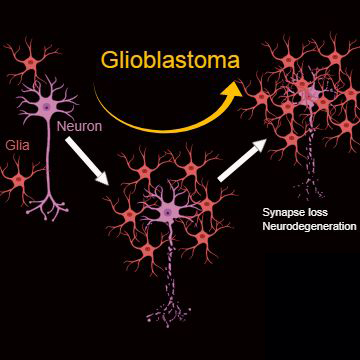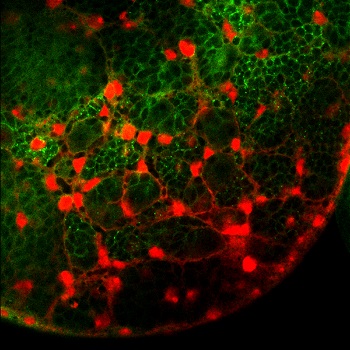Glia-Neuron molecular signaling


Glioblastoma (GB) is the most common and lethal type of cancer of the central nervous system, it is characterized by its aggressiveness, rapid cell proliferation and great infiltration capacity. GB cause progressive neurological dysfunction including memory loss, speech and language defects, epileptic seizures and vomits. There is no cure for this type of tumors and the median survival after optimal treatments (surgery, radiotherapy and chemotherapy) is 14,6 months. Our data indicate that GB cells develop a network of tumor microtubes (TMs) which confers resistance to the radiotherapy, contribute to the proliferation and dissemination of the tumor and provokes the degeneration of the neighboring neurons.

Glial cells establish a network of projections to communicate and coordinate. Confocal image of a Drosophila third instar larvae brain. Glial cells and membranes are marked with myristoilatedRFP, neurons are marked with anti-HRP monoclonal antibody.
We propose the study of signals that mediate GB and neuron communication and mediate GB progression and neurodegeneration. The mechanisms underlying these processes are proposed as a potential novel strategy against GB.